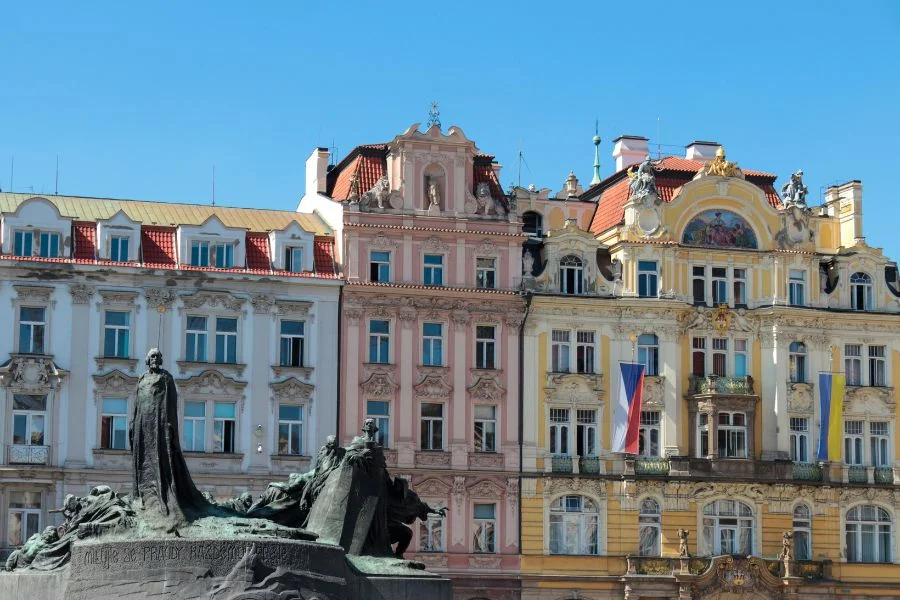For many international students, professionals, and families, the Czech Republic is more than just a country of fairy-tale castles, cobblestone streets, and world-class beer. It is also an attractive destination for those seeking to establish a stable, long-term future in Europe. In this guide, we will explore how foreigners can move from temporary residence to permanent residency in the Czech Republic, covering eligibility, application steps, and common issues that applicants should avoid.
Key Takeaways
Understanding Permanent Residency in the Czech Republic
Permanent residency, or trvalý pobyt, grants foreign nationals the right to live, work, and study in the Czech Republic without restrictions. It also provides access to healthcare, social benefits, and greater stability compared to temporary residence permits. Although it is not the same as citizenship, holding permanent residency is often the first step toward naturalisation.
Eligibility for Czech Permanent Residency
Eligibility depends on several factors, particularly the length and type of stay. In most cases, non-EU citizens can apply for permanent residency after five years of continuous legal residence in the Czech Republic. EU citizens and their family members have a slightly easier pathway, often requiring a shorter period of residence.
Also Read: How to Get Permanent Residency in Norway
Other routes exist for specific groups:
- Family members of Czech or EU citizens may qualify earlier if they are spouses, registered partners, or dependent children.
- Highly skilled professionals or Blue Card holders may apply sooner, with some able to transition after two to three years.
- Refugees or individuals under subsidiary protection also benefit from special provisions that shorten the residency timeline.
The Karta Pobytu vs Temporary Residence
It is essential to distinguish between temporary residence permits (povolení k pobytu) and permanent residence (trvalý pobyt). Many newcomers confuse the two. A temporary residence card allows foreign nationals to live in the Czech Republic for work, study, or family reasons, but it has limited rights and requires renewal. The permanent residence card, known as the karta pobytu, removes these restrictions, grants broader rights, and is valid for ten years with the option of renewal.
The Application Process
The permanent residency application must be filed with the Ministry of the Interior (Ministerstvo vnitra), specifically through the Department for Asylum and Migration Policy. The process involves several steps:
- Confirming eligibility based on the required length of stay and visa history.
- Gathering documents such as proof of accommodation, employment contracts or proof of income, health insurance coverage, and a criminal record extract from the applicant’s country of origin.
- Submitting biometric data, including fingerprints and photographs, for a permanent residence card is a biometric document.
- Demonstrating knowledge of the Czech language, non-EU citizens must usually pass a basic Czech language exam to qualify.
Processing times vary, but applications typically take between 60 and 90 days to be reviewed, although in complex cases it can take longer.

Common Mistakes to Avoid
Applicants frequently face delays or rejections due to avoidable errors. Some of the most common mistakes include:
- Submitting incomplete documentation, particularly proof of accommodation.
- Failing to maintain continuous residence in the Czech Republic. Long absences outside the EU can reset the residency clock.
- Overlooking the language requirement, which is strictly enforced for non-EU citizens.
- Relying on temporary residence permits without planning for the permanent residency timeline.
By preparing carefully and ensuring all requirements are met, applicants can reduce the likelihood of complications.
Benefits of Czech Permanent Residency
Permanent residency offers numerous advantages that make the process worthwhile. Holders of the karta pobytu enjoy:
- The ability to live and work in the Czech Republic without restrictions.
- Full access to public healthcare and social security benefits.
- Eligibility for education under the same conditions as Czech citizens.
- The freedom to conduct business activities without the need for additional permits.
- A clear pathway toward Czech citizenship after holding PR for a specific period, usually five years.
Also Read: How to Get Permanent Residency in Germany
For those planning long-term integration in Europe, permanent residency in the Czech Republic provides both security and opportunity.
Transition to Citizenship
Although permanent residency does not automatically lead to citizenship, it does establish the foundation. To apply for Czech citizenship, applicants generally need to have lived in the country for a total of ten years, with at least five years as a permanent resident. Proficiency in the Czech language and knowledge of Czech history and society are also required.
Final Thoughts
In this guide, we have explored the process of obtaining permanent residency in the Czech Republic, from understanding eligibility and documentation requirements to the benefits and eventual path to citizenship. While the application can feel complex, careful preparation and awareness of common mistakes can make the journey smoother. For students, workers, and families who see the Czech Republic as their long-term home, securing permanent residency is not only a legal step but also a meaningful milestone toward stability and belonging in Europe.
Reference: https://mv.gov.cz/mvcren/article/third-country-nationals-permanent-residence.aspx





